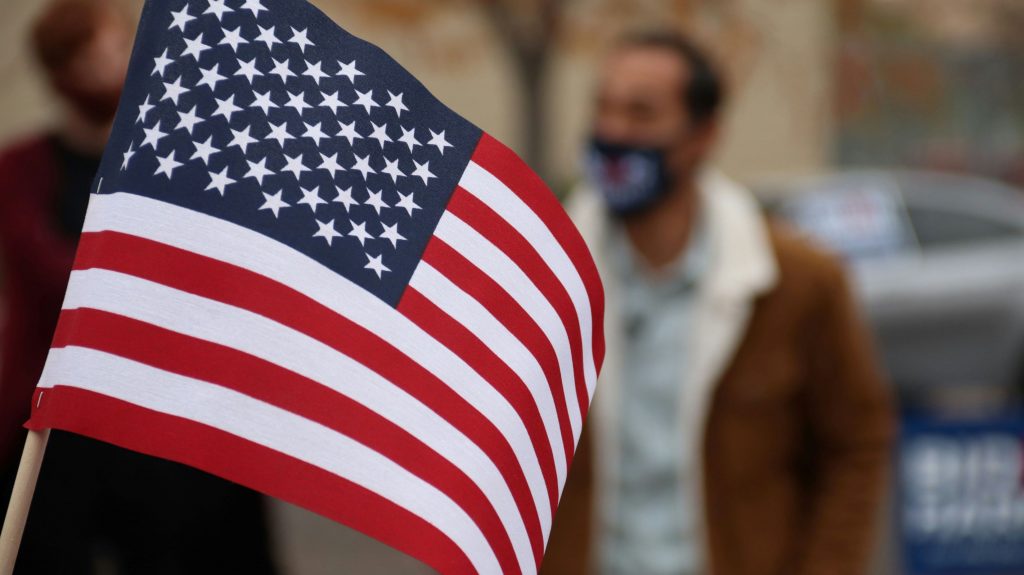The Exhausted Majority: A Path to Renewing American Politics
Khushwant Saggu (*)

Toronto, October 31.– American politics is broken. Over the past few years, bombshell news and dramatization have deepened partisan divides, leaving many Americans feeling estranged from one another. Despite many Americans sharing similar policy concerns over hot-button topics like abortion, guns and education – media bias, social media echo chambers distort perceptions and exacerbate division.
I argue that much of this dysfunction stems from underperforming political actors who fail to provide competent leadership. Instead of lamenting the poor options available, more scrutiny should be placed on political parties for their failures. To restore balance, political parties must engage the Exhausted Majority and introduce elements of gatekeeping to restore civility.
Polarization & the Perception Gap
Research shows a significant perception gap—over 30%—between far-left activists and deep-rooted conservatives. This gap reflects a discrepancy between what people actually believe and what they think others believe. Media bias, online echo chambers, and narrow social circles worsen this distortion, making opponents seem more extreme than they truly are. This perception gap justifies drastic measures, leading people to view each other as enemies and encouraging norm-breaking behavior.
The consequences of polarization are stark. It undermines confidence in institutions, putting the country on a path toward dysfunction. The perception gap is particularly dangerous because it alienates people from one another. Events like the Trump impeachments, his subsequent legal battles and constant media frenzy around him fuel public exhaustion, prompting many Americans to disengage from politics altogether.
Interestingly, studies show that politically disengaged individuals—those less invested in the day-to-day political squabbles—tend to have a more balanced view of politics. This suggests that active participants in politics often exacerbate polarization, creating a vicious cycle of conflict that drives more people away.
The Exhausted Majority
The Exhausted Majority—those not firmly attached to either political party—hold the key to breaking political deadlocks. Traditionally referred to as moderates, these individuals often swing elections and are crucial to gauging the health of the political system. However, according a recent Pew Research Center survey, they are increasingly alienated by a lack of progress on fundamental issues, a loathing for the entrenched two-party system, and a dislike for having to “pick between the lesser of two evils.”
Many in this group voted for President Donald Trump in 2016 because he appeared untarnished by the Washington establishment; likewise, a substantial electoral turnout in 2020 voted for President Joe Biden because he seemed less radical. Yet, despite their initial appeal, Biden, Trump, and now Kamala Harris each have their struggles in terms of likeability and perceived competence. As the 2024 election fast approaches, the Exhausted Majority feel disillusioned and frustrated by the limited options.
The 2024 election reflects a deeper leadership crisis. Both Harris and Trump embody the failures of their respective parties to provide competent alternatives. This failure is not merely a result of institutional flaws but reflects the choices made by political actors. Trump steamrolled through the Republican primaries, and Harris, who was not a popular VP, was suddenly appointed as the nominee after Biden was essentially strong-armed into stepping down. This, after he had refused to do so on multiple occasions despite concerns over his ability to govern effectively.
Leadership Crisis & Gatekeeping
This leadership crisis highlights the need for political parties to rethink how they select candidates. Before the modern primary system emerged in 1969, party elites played a crucial gatekeeping role, vetting candidates to ensure they could appeal to the country as a whole. For example, despite public enthusiasm for Henry Ford’s potential candidacy, the Democratic Party bypassed him, recognizing that his controversial opinions made him an unfit leader.
While today’s primaries are more democratic, they have also allowed eccentric candidates to dominate. Polarizing figures—whether anti-establishment or establishment—exploit the primary system to secure nominations, leaving voters with few viable choices. To restore trust in the political system, parties need to reintroduce gatekeeping elements. This does not mean abolishing primaries, but it does mean offering a carefully vetted, more qualified candidate pool.
Restoring Trust
Political parties must take responsibility for the candidates they offer. A return to thoughtful gatekeeping can provide voters with better leadership options and reduce polarization. Engaging the Exhausted Majority—those who reject extremes and crave competent governance—will be essential to this renewal.
Both parties must have transparent discussions with voters about who is best positioned to lead. Parties should prioritize moderates who can bridge divides and govern effectively. The focus must shift from spectacle to governance, from reactionary measures to pragmatic leadership. By doing so, parties can restore trust in the political system and reinvigorate participation among disillusioned voters.
A Call to Action
The dysfunction in American politics can only be addressed by reducing polarization, and I argue that offering better leadership will help return civility to our public discourse. Political parties have a responsibility to engage the public and provide candidates capable of governing with competence and moderation. A return to thoughtful gatekeeping—without sacrificing democracy—can help restore balance and rebuild trust in American institutions. Through these efforts, the U.S. can move toward a more functional and less divided political landscape.
(*) Political Science student, University of Toronto
